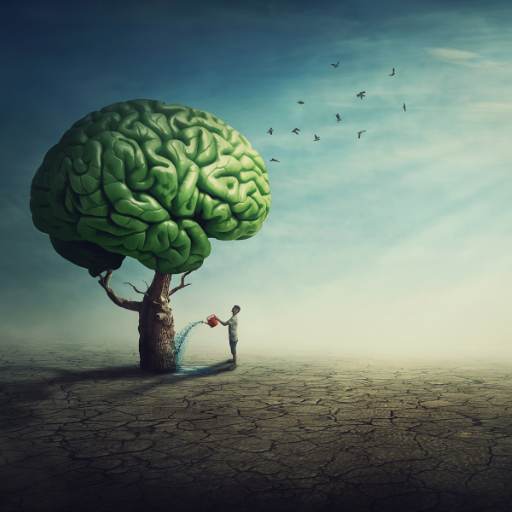The connection between brain injuries, mental health (MH), and substance use can be a tricky puzzle. It’s like trying to figure out a complicated maze for people, their families, and the experts helping them. But don’t worry, the Brain Injury Association of America – Maine Chapter (BIAA-ME) is here to help. We have resources and services to support survivors, families, and professionals.
Brain Injuries and Substance Use: A Risky Mix
Brain injury survivors are at higher risk for substance use disorder (SUD), and SUD puts individuals at higher risk for a brain injury. Individuals with an acquired brain injury are at an increased risk for SUD due to many factors like higher rates of chronic pain, higher risk for pre- and post-injury substance misuse, injury-related behavioral changes, the over-prescribing of opioids, and barriers to treatment.
Brain injuries can happen from accidents, like car crashes, playing sports, falling, or even infections, tumors, and overdoses. Concussions are also classified as mild traumatic brain injuries, and repeated concussions can lead to long-term damage.
Here are some surprising facts:
- If someone was already using drugs or alcohol before a brain injury, they are ten times more likely to keep using them after the injury.
- More than a third of people seen in the hospital for a brain injury have a history of substance use.
- Studies have shown that a good number of people getting treatment for substance use, had a previous brain injury.
- People with a brain injury are eleven times more likely to accidentally overdose or get poisoned.
The Emotional Struggle: Brain Injuries and Mental Health
After a brain injury, things can get tough emotionally. Brain injury is commonly associated with changes in mood, personality, and behavior. Brain injury survivors also experience higher rates of depression, mania, obsessive-compulsive disorder, PTSD, and personality changes than the general population. Some even face thoughts of hurting themselves. A study from Denmark found that the risk of suicide triples in the first six months after a brain injury and stays elevated in the long term.
But don’t lose hope; there’s help!
BIAA-ME’s NRF Program – Your Guide to Support
BIAA-ME has the NeuroResource Facilitation (NRF) program to help guide those on this complicated journey. Patty King, one of BIAA-ME’s NeuroResource Facilitators, helps people who have both brain injury and substance use disorder. She’s all about connecting people to resources and support. She helps individuals and professionals find new tools, look at situations in a different light, break down barriers, and help people forward in their journey.
Patty has witnessed many moments where the potential impact of brain injury on the individual’s recovery patterns and attempts have been understood. BIAA-ME shares tips and tricks with professionals in recovery and harm-reduction fields, allowing them to incorporate those concepts into what they are already doing.
Working Together: BIAA-ME and TCMHS Collaboration
BIAA-ME is working closely with Tri-County Mental Health Services (TCMHS) as a pilot site to help even more. They are training TCMHS to understand brain injuries better, providing tools to check for brain injuries, and connecting them with NRF services. The goal is to find people getting help for substance use who might also have brain injuries and make sure they get the right support.
This collaboration helps people understand brain injuries better and how common they are in people with substance use issues. “I have seen many people who, once they understand a brain injury may be part of their story, are relieved that it’s not ‘their fault’ and there is renewed hope for more solutions or support out there they haven’t yet tried,” Patty shared.
Getting the Right Help
Identifying Brain Injuries Brain injury symptoms can look a lot like those found in substance use and mental health issues. It’s essential to tell doctors about anypossible brain injuries to get the right treatment. Sometimes brain injuries affect skills that are important for recovery and counseling, like time management, planning, and staying organized.
Some brain injuries develop immediately, but others can take weeks or months to surface. This can be an added challenge, but help is possible even years after the injury.
Reach Out for Support and Hope
If you think you might have had a brain injury, see a doctor as soon as possible. BIAA-ME’s resource team is here to help you navigate life after a brain injury. We offer information, resources, and one-on-one support through NeuroResource Facilitation, and it’s all FREE.
Remember, you’re not alone in this journey. BIAA-ME’s Maine Brain Injury Information Center at 800-444-6443 for help finding brain injury resources. Together, we can light the path to recovery and hope.
Acknowledgment
We want to thank the Administration for Community Living and the Office of Aging and Disability Services for supporting this pilot project.
References: https://bit.ly/bnia-help



